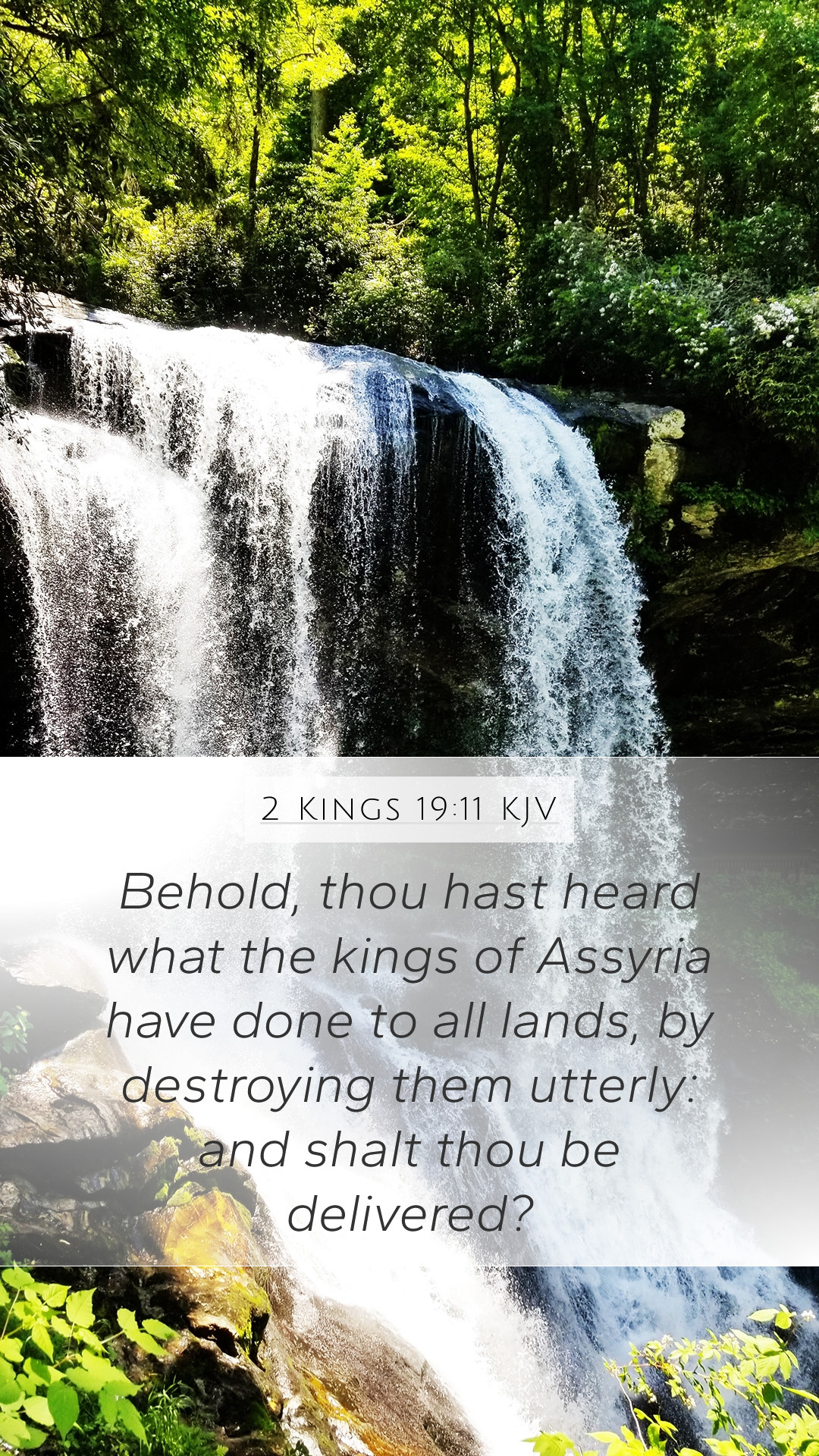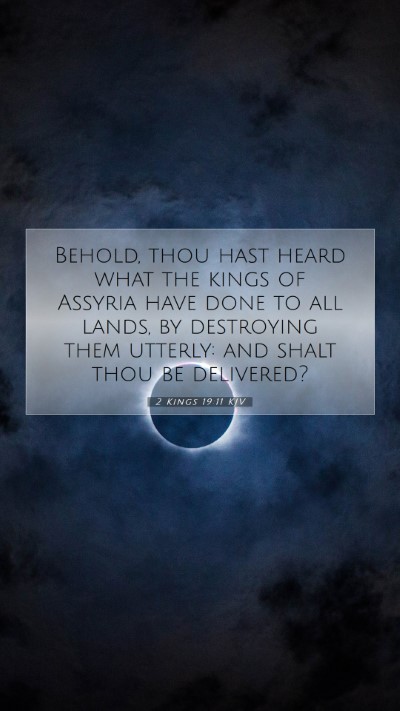Understanding 2 Kings 19:11
Verse: 2 Kings 19:11 - "Behold, thou hast heard what the kings of Assyria have done to all lands, by destroying them utterly; and shalt thou be delivered?"
This verse occurs in context of King Hezekiah's prayer during the Assyrian siege of Jerusalem. It reveals the dire situation faced by the Kingdom of Judah and highlights the rhetorical challenge posed by the Assyrian king, Sennacherib, who boasted of his conquests and mocked the God of Israel.
Bible Verse Meanings
The meaning of this verse can be understood through several angles:
- Historical Context: The Assyrian Empire was known for its brutal conquests, and Sennacherib's taunts emphasized his confidence in destroying Jerusalem just as he had annihilated other nations.
- Spiritual Challenge: This verse illustrates the spiritual challenge facing Hezekiah, as he wrestles with the fear of destruction and the appeal to trust in God.
- Divine Sovereignty: The mocking challenge from Assyria represents an affront not only to Hezekiah but to God, positioning the situation for God's demonstration of power and sovereignty.
Bible Verse Interpretations
Various Bible commentaries provide insights into 2 Kings 19:11:
- Matthew Henry: He expounds on the arrogance of the Assyrian king, noting that their destruction is a testimony to God's judgment on those who oppose Him. He also emphasizes the futility of trusting in human strength against divine will.
- Albert Barnes: Barnes highlights the implication of the verse which reveals the desperation of Hezekiah’s situation. He notes the evidence of Assyrian power and how it undermines the confidence of the people in God's protection.
- Adam Clarke: Clarke focuses on the historic warnings from Assyria and the lessons of faith. He draws attention to the need for reliance on God's promises, contrasting human might with divine intervention.
Scripture Analysis
This scripture involves a profound rhetorical question that serves to challenge the faith of Hezekiah and the people of Judah. The verse is pivotal for understanding the overall narrative of Judah's reliance on divine providence amidst overwhelming odds.
Bible Study Insights
When studying this verse, consider:
- The historical backdrop of Assyria as a dominant superpower.
- The leadership of Hezekiah in trusting God amidst crisis.
- The nature of faith when faced with apparent insurmountable challenges.
In-depth Bible Verse Analysis
The challenge posed by Sennacherib encompasses much more than mere taunts; it signifies a spiritual warfare where faith is tested. Hezekiah's response to this challenge is critical to understanding the resulting divine intervention that follows in chapters 19 and 20.
Cross References
This verse can be cross-referenced with the following Scriptures for deeper understanding:
- Isaiah 36:10: The Assyrian envoy challenges Hezekiah's trust in God directly.
- Isaiah 37:33-36: God's promise of protection and the destruction of the Assyrian army.
- Psalm 20:7: A reminder of who truly provides salvation, contrasting reliance on chariots or horses with the name of the Lord.
As you meditate on 2 Kings 19:11, consider how it applies to your own life and the lessons of faith, reliance upon God, and the assurance of His sovereignty amid today's trials.


